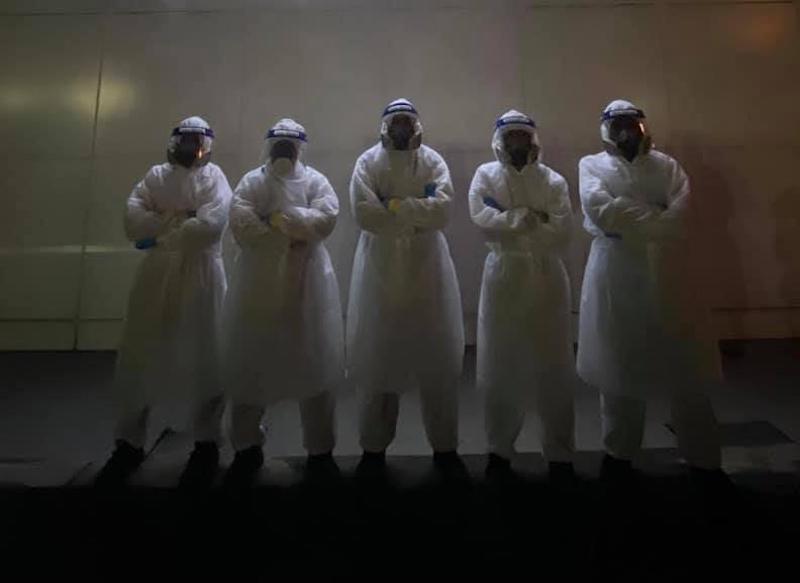KUALA LUMPUR, Aug 17 — The Covid-19 pandemic and the movement restrictions have brought a new set of challenges for businesses in almost all sectors.
Pest control providers seem to be not excluded as the rising Covid-19 cases and movement restrictions continue to affect their operations nationwide.
Speaking to Malay Mail, Malaysia Pest Management Association’s (MPMA) newly-elected president Regine Lim expressed concern for restricting pest control and pest management activities due to the lockdowns.
Lim said the service providers in the sector initially received a green light from the Health Ministry allowing the sector to operate but she said the decision was later reversed after a couple of days last year.
According to her, pest management is one of the most crucial measures for all sorts of businesses, residential areas and the community at large.
“Pest control is needed everywhere, especially when there is a lockdown and businesses must shut for an extended period.
“When businesses close, the pest activity is rampant and the pest comes out more to infest an area,” said Lim, who is also Entopest Environmental Services general manager.
Lim also noted that pest control providers are sought after by industrial, manufacturing, logistics, housing, food and beverages as well as pharmaceutical sectors.
“Most of these sectors were allowed to operate and they need us to ensure their environment is safe and hygienic.”
In fact, Lim said one of the major job scopes of the pest control sector is disinfection and sanitisation works.
“We have been conducting sanitisation and disinfection works way before the pandemic.
To date, there are about 1,800 licensed pest control management companies in Malaysia.
As the demand for sanitisation and disinfection services increased, Lim claimed some opportunists jumped on the bandwagon and picked up a fogging machine to take advantage of the current situation and benefit from the lucrative market.
“We are not even sure if the newcomers have the relevant license and the necessary training to use the approved chemicals.”
According to Lim, there are various types of sanitisers and disinfectants in the market, out of which, some are not approved.
“Even among the approved products, only the trained professionals would know which chemical should be used for a particular environment.
“We have to analyse the surface that requires treatment before selecting the sanitisation chemical and treatment method for effectiveness.”
If the work is carried out inappropriately by incompetent technicians, Lim said it can pose health and safety risks to the public.

A critical service
Rentokil Initial managing director (Malaysia, Philippine and Brunei) Carol Lam said pest control was a critical service for private, public and even government sectors as it was for the safety of the community.
Lam said she was surprised that the government has not recognised pest control as an essential service, in comparison with neighbouring countries like Singapore, Brunei and Philippine where the sector was categorised as essential.
“In fact, in Indonesia, pest control is categorised as a critical sector, one level above the essential sector.
“One of the main reasons why pest control should be considered as a critical service is that we cannot afford to risk food safety in the supply chain and public health during a pandemic crisis or any similar lockdowns.”
Lam said the pest control sector here was allowed to only operate as a support service to the essential businesses but the directives were unclear.
“Because of no clear directives, the authorities could stop our staff at roadblocks and turn them back.
“We had clients from residential areas complaining about dengue, rats, termites and household pests but we couldn’t help.”
Other MPMA exco members who expressed their concerns over the sector were deputy president Alex Kong and honorary secretary Intan Noorafniza.
Lam said most of the smaller pest control management companies predominantly focus on the residential areas but their operations have been affected due to the movement restrictions.
Unrecognised frontliners
With the high number of daily Covid-19 cases, Lam said the pest control providers and technicians were at risk of contracting infectious disease as they were often at high-risk areas to carry out their duties.
When asked if all of their frontline staff are vaccinated, Lam said a substantial number of the technicians only received their jabs at a later stage.
“This is because the government did not recognise us as frontliners.
“We wrote to the government multiple times to prioritise pest control providers for vaccination but we were informed to wait for our turn.”
Lam said although the recent efforts by the government to ramp-up the vaccination helped those in Klang Valley, some states like Johor still lagged behind.
Johor-based Dr. Pest Sdn Bhd managing director Suhamdan Salim said most of his staff have yet to receive their first dose of vaccine despite being above 40 years old.
“I am now considering paying RM350 per person to get my staff vaccinated as the Covid-19 situation is quite bad.”
Financial challenges
On top of the operating challenges, the pest control providers also pointed out the increased operating cost and low revenue due to the pandemic and the movement restrictions.
New Tech Pest Control Sdn Bhd general manager Selva Rajan said they now have to equip their staff with full personal protective suits and send them for Covid-19 swab tests regularly.
“All these incur additional cost to us.”
Overall, Lim estimated that the sector’s operating cost has increased up to 30 per cent, while experiencing a significant revenue blow due to the lockdowns and its resulting financial difficulties on businesses.






















